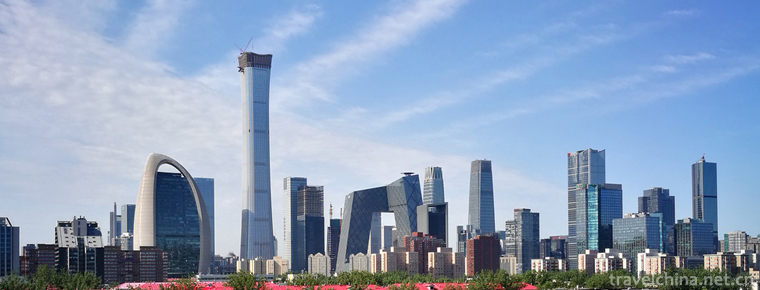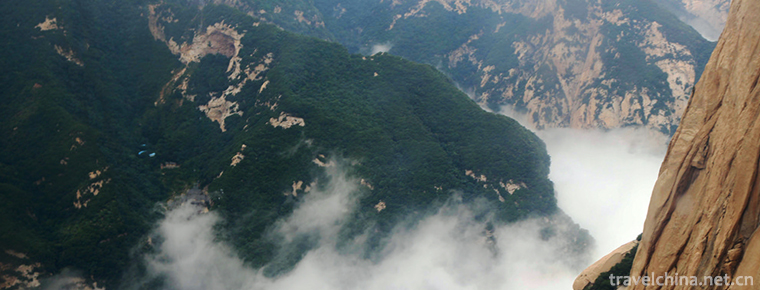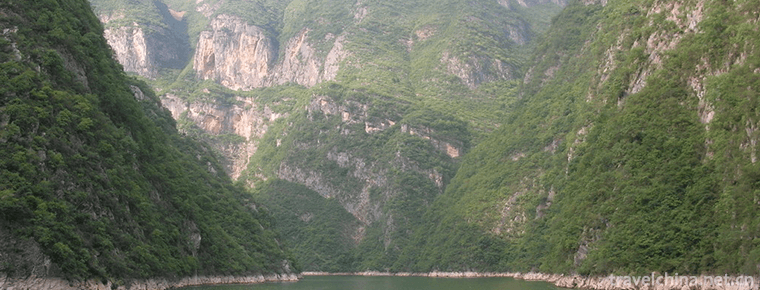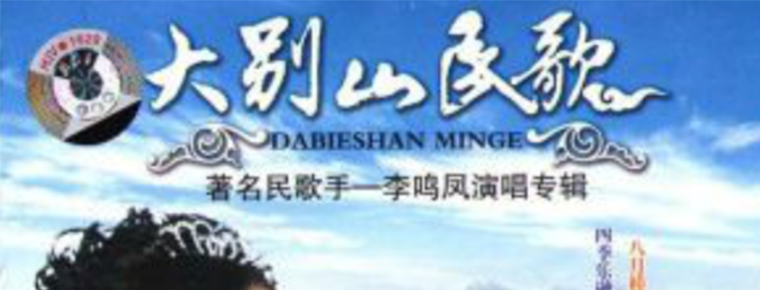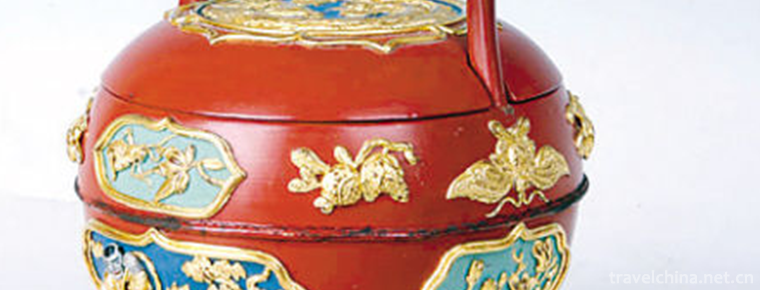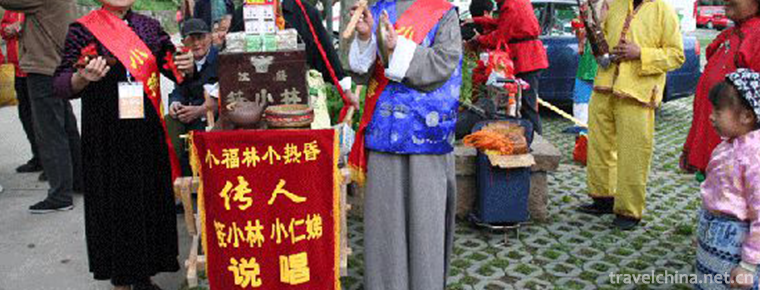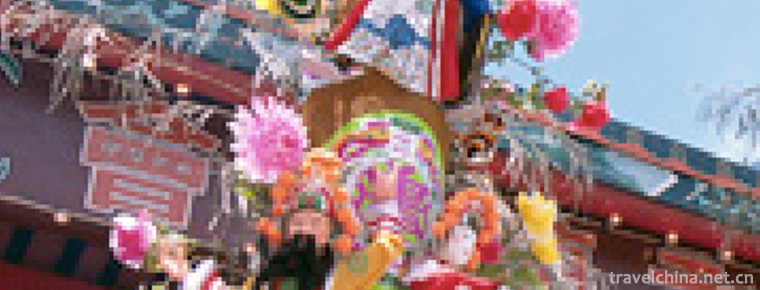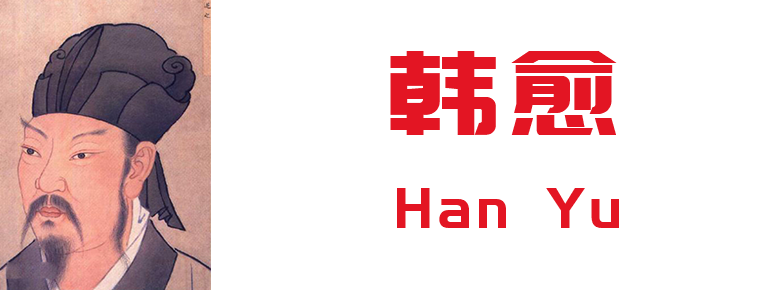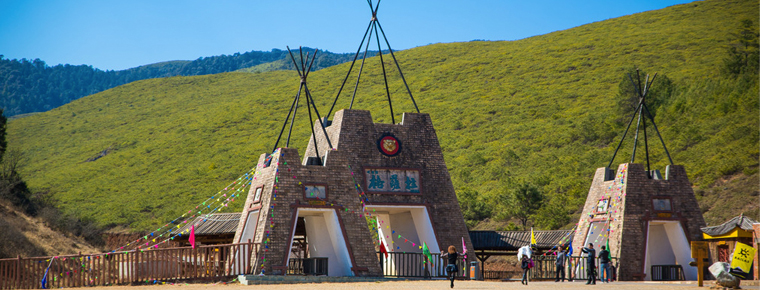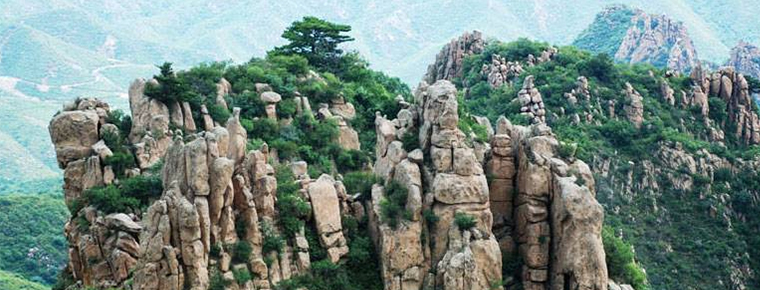Shangdang Laozi
Shangdang Laozi
Shangdang Laozi is one of Shanxi local operas. It is a kind of opera popular in southeastern Shanxi. Shangdang Laozi is a tributary of Wu'an Laozi in Hebei Province. During the Daoguang period of the Qing Dynasty, Wu'an Laozi flowed into Licheng. After that, it merged with local languages and folk songs and gradually developed into a kind of opera with Shangdang's local style. In the course of development, different classes were influenced by Shangdang Bangzi and Puzhou Bangzi respectively, so during the Qing Guangxu period, Shangdang Laozi formed two art schools, the South Road and the West Road. The latter two schools drew lessons from each other and gradually unified their styles.
On June 7, 2008, Shangdang Laozi, declared by Lucheng and Licheng Counties in Shanxi Province, was listed in the second batch of national intangible cultural heritage lists with the approval of the State Council.
Heritage serial number: 699 IV-98.
historical origin
The falling son of Shangdang originated from Wu'an falling son of Hebei Province. During the reign of Qingdaoguang, folk songs and Shangdang Bangzi's artistic nutrition were absorbed and formed.
During the Tongzhi period of the Qing Dynasty, a righteous class was organized in Luhe Village, Lucheng County, and the "beating dike circle" was put on the stage. After Shangdang Laozi moved to the stage, in order to compete with Shangdang Bangzi for audiences, Wang Sihu (also known as Han Baotai) was invited to teach in Guangxu Decade (1884) from Hebei Province for many years, which enabled Li Chenglaozi to develop both in content and form, from performing only minor folk life plays to performing major Dynasty plays.
In the 28th year of Guangxu (1901), artist Wang Sanhe brought Pu Opera performing skills back to Shangdang area, and absorbed Wu Opera skills such as "Sanchakou" of Hebei Bangzi, which enriched the opera items and improved the music singing and performing arts. His activities were extended to most parts of Shangdang and Linfen, Taiyuan, Ruicheng, Yongji, Yonghe, Daning, Shexian, Wu'an, Cixian and Hehe. Nanlin County, Yanchuan, Shaanxi Province and other places. From Guangxu 28 (1902) to the Republic of China 24 (1935), there were more than 20 class societies in Licheng, Lucheng, Huguan, eldest son, Tunliu and southern Shanxi, such as Catching Classes, Xingsheng Classes and Pingsheng Classes. More than 100 performances were frequently performed and the types of plays were flourishing.
During the 27 years of the Republic of China (1938), Wang Congwen organized performers in Licheng to compile new plays reflecting the life of the anti-Japanese struggle and put forward plans for the reform of drama to the superior leaders. In the 28 years of the Republic of China, with the support of Rong Wusheng (Rongzi), Commissioner of Shanxi Five Commissioners'Office, and Wang Xingrang, head of the Central District of Ruling by the President of Yimeng League, an anti-Japanese theatre troupe was established, which mainly produced and performed more than 10 new plays, such as The Eighth Route Peaceful Pass, The Great War Shentouling, Tianjin Wei, Wang Ren Guo, Women Kill the Enemy and Taierzhuang. In the 31st year of the Republic of China, the Anti-Japanese Theatre Troupe was incorporated into the Tainan Victory Theatre Troupe. It continued to rehearse the repertoire "Anti-Sweep", "Spring Farming Movement" and "Double Turn" which cooperated with the anti-Japanese struggle, rent reduction and interest reduction, and self-saving production. Wang Congwen won the title of first-class model dramatist at the Taihang Cultural and Educational Conference held in May, 34, because of his outstanding achievements in reforming drama.
From 29 to 38 years of the Republic of China, the professional troupes of Dropping Opera were formed successively, including Changzhi Victory Troupe, Tunliu Jianghe Troupe, Licheng Dawn Troupe, Lucheng Mass Troupe, Pingshun Peasant Troupe and Huguan People's Troupe. They rehearsed Blood and Tears Enemy, Baimao Nu, Wang Gui and Li Xiangxiang, Wang Xiulu, Chiye River, Shicunjin and Entrap. In addition to their activities in the countryside, the troupe often performs consolation performances for the army.
In 1950, the Tunliu Jianghe Opera Troupe reformed the performance, music and make-up of the opera, transplanted and rehearsed "Liang Shanbo and Zhu Yingtai" to perform successfully in Linfen, with a great reputation. Under the influence of this reform trend, Gaoping, Huguan, Qinxian, Xiangyuan and other places have also established the Laozi Opera Troupe.
Traditional drama
According to statistics, by 2003, there were more than 200 traditional plays by Shangdang and Laozi. Frequently staged and influential among the masses are the new historical plays of Daluying, Xia Bian Ting, Soudu Fu, Misonglin, Yuanmen Chopper, He Hou Dao Dian, Sanguan Pai Banquet, Tea Bottle Design, Cheng Ying Jiu Gu, Zhu Yuanzhang's Chopping His Son, the Sui Palace Case, the ancient costume serial play of the civet cat for the Prince, and the old costume. LianBen Opera, Drunken Chen Bridge Traditional Opera, Zhongbao (Erjin Palace) Traditional Opera, LiangLangshan Traditional Opera, Six Langs Recruitment Traditional Opera, Wenwang Visiting Xian Traditional Opera, Simazhuang Traditional Opera, Curse Hall Traditional Opera, Chopper Traditional Opera, Chongyuan Traditional Opera, Women on Tuwei Modern Opera, Ugly Sister Modern Opera, Sun Flowers Modern Opera Modern Opera Selection of "Wisdom Take the Prestige of Tiger Mountain", "Red Lantern Record", "History of a Revolutionist Painfully", "Title of the Golden List" Small Opera, "Secretary's Residence" Small Opera, "Boil Brain Feeling" Modern Small Opera, "Cuncaoxin" Modern Small Opera, "Dismantling Photo Wall" Modern Small Opera, "Setting Plan", "Deep Mountain Asking Pain", "Striking Tiger Up Mountain", Blood Sword, Gan Lusi Temple, Shengong Youyuan, Dou E's Injustice, Success or Failure Xiaohe, Yang Qiniang, Pair Guns, Zhao Ershe Dengji, Luoyang Hui, Golden Sister, Huai Duguan, Jiyangguan, Zhongbao Recruitment, Burning Qinggong Building, Mu Guiying's War on Hongzhou, Cheng Biaojin Recruitment of Kinship, and other new historical plays, Dajiao Queen, Sanguan Mingyue and Sanguan Mingyue. "White T-shirt" and modern drama "Huairezi", "Maple Leaf is Red" and so on.
Famous actors
Wang Sanhe, Li Fusuo, Hu Yuzhen, Wang Zhaorong, Yang Fulu, Wang Xiancai, Hao Yi,
Xu Xitang, Wang Hucheng, Li Cuihua, Li Minquan, Li Shan, Wang Fengfeng, Wang Zhimin, Shen Zhiping, Yuanhe Liang, Zhang Yingying, Han Baoyu, Zhao Mize, Cui Jinzhu, Songshaniu, Hao Pingzhi, Guo Ming'e, Fu Yongliang, Wei Xiaoma, Liu Zhifang, Song Mingsheng, Wang Wanli, etc.

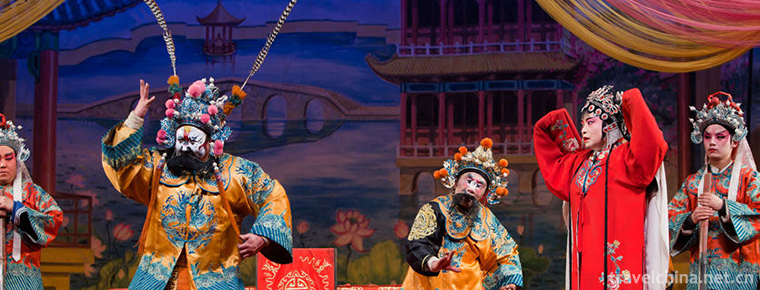
-
Mount Hua
Mount Hua, known as "Xiyue" and "Taihua Mountain" in ancient times, is one of the five famous mountains in China and the birthplace of Chinese civilization.
Views: 340 Time 2018-10-30 -
Little Three Gorges
Wushan Xiaoxiao Three Gorges is the general name of Changtan Gorge, Qinwang Gorge and Sanzhuang Gorge on Madu River, a tributary of Dicuixia of Daning River. Wushan Xiaoxiao Three Gorges is known as t.
Views: 190 Time 2019-02-25 -
Dabie Mountain Folk Songs
Dabie Mountain folk song is a traditional folk song widely circulated in the west of Anhui Province. With the unique regionality of the interdependence of mountains and rivers.
Views: 247 Time 2019-04-23 -
Ningbo Mud Golden Paint
Ningbo mud gold paint is a local traditional lacquerware process in Zhejiang Province. Chinese raw lacquer is the main raw material. Raw lacquer, also known as big lacquer and real lacquer,.
Views: 123 Time 2019-06-07 -
Small febrile coma
Xiao Redun is a kind of traditional Wu rhetoric banter popular in Jiangsu, Zhejiang and Shanghai. It is also known as "Xiaogongshu", commonly known as "selling pear ointment candy".
Views: 107 Time 2019-07-06 -
Zhongyuan Festival Chao Ren Yulan Winning Club
Chao Ren Yulan Sheng Hui is a traditional folk custom and folk belief activity. The fifteenth day of the seventh lunar month is commonly called "ghost festival" in Hong Kong. It is said that.
Views: 170 Time 2019-08-10 -
Beijing University Of Agriculture
The predecessor of Beijing University of Agriculture, Tongxian agricultural school, Hebei, was founded in 1956. In 1958, Tongxian agricultural school in Hebei province was merged with Beijing agricult.
Views: 324 Time 2019-09-06 -
Han Yu
Han Yu (768 - 824 December 25th) retreated. Henan Heyang (now Henan Province Mengzhou People. Claiming to be "Changli," the world is called "Han Changli" and "Mr. Changli".
Views: 154 Time 2019-09-07 -
Gesala Ecotourism Area
Gesala eco-tourism area is located in Yankou Township, walai Township, Wenquan Township and Qinghe Township in the northwest of Yanbian County, Panzhihua City. It is located at the junction of Sichuan Province and Yunnan Province..
Views: 365 Time 2020-10-15 -
Daheishan Forest Park
Daheishan Forest Park is located in Wuben Township, Renhe District, Panzhihua City, Sichuan Province. From the center of Panzhihua bingcaogang River Panshan 58 kilometers, through Guaziping, Lanjian mine and Wuben township..
Views: 73 Time 2020-10-15 -
Chuanxindian earthquake site
Compared with Beichuan earthquake site, Yingxiu earthquake site and Hanwang town earthquake site, chuanxindian earthquake site in Shifang has unique advantages. It can fully reflect the great spirit of earthquake relief and has great protection and construction value..
Views: 102 Time 2020-11-05
